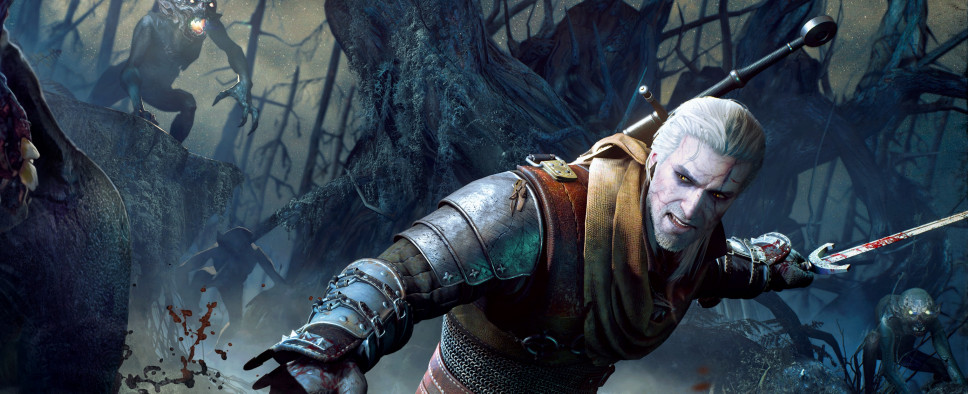The Witcher 3: Wild Hunt Editorials
-
Category: News ArchiveHits: 2089

I suspect that people will be entrenched in The Witcher 3: Wild Hunt for a very long time, and as a result, we'll have the opportunity to tag along with them through the power of editorials. As it so happens, three such articles emerged over the past week.
First, Endless Backlog takes us on "The Endless Hunt":
The Witcher 3, made by CD Projekt Red, has made me forget what I know to be true. Every few hours, my common sense fails me. I catch myself thinking (Does this game go on forever?) I know people have beaten the game I've seen journalists discuss the ending and friends who have Steam achievements for beating the game but it almost seems impossible. I have poured 70 hours into the game and in no way am I close to the final act. Instead of assuming I can't do something in the game, I try. My imagination is slowly coming back to me.
There isn't one thing that I can attribute this success to. It's in how huge the map is, how every nook and cranny seems to be filled with something interesting to find or explore, the way in which main quests branch into side quests/side quests bleed into the main quest etc. The game constantly makes me feel that if I were to play it a hundred thousand times over, I would never experience it the same way twice. Even if most decisions and events are set in stone, The Wild Hunt is a master illusionist, making you believe that it is you and you alone that shapes this adventure. With a world this vast, populated by more characters than my own city in real life, I'm bound to be missing hours upon hours of content without even knowing it and I have '˜inspect-every-texture-of-every-leaf' style gaming OCD. If you have tunnel vision and only focus on the main quest, I won't say you're playing the game wrong, but you are definitely missing out.
A blogger on IGN declares that "The Witcher 3 is the Best Pokemon Game in Years":
Eventually you get a quest line to travel around Velen, playing the best Gwent slingers, earning you new cards for each, adjusting your meta now not just for the locals, but for factions because you've had enough experience by this time to know how to counter some of the different faction tricks. Keep a close combat-negating weather effect in hand for monsters. Draw out as many cards in hand from your opponent on first match and lose (on purpose) for Northern Realms. You start to learn the meta of the region.
Then you end up different regions with stronger players and your metagame has to change again; you must gather more cards for your pool to build stronger decks against these stronger players. And then you receive an invitation you've qualified and are invited to GO to Novigrad and participate in two different things. The first, in real life, is called Regionals. This may represent players from your state or multiple states, competing for the chance to go to a larger tournament (usually Nationals or World) to win better cash and prizes. As soon as you get to Novigrad, you must complete a Regionals, of sorts, against the Novigrad players. This is where you score some prime cards to continue building your meta (and now starting to flesh out a second and possibly third deck through different factions of your own) and eventually you can compete in what represents Nationals; or perhaps more appropriately in The Witcher 3: Wild Hunt Worlds. And let me tell you, they bring the competition, just like real life.
And Triad Gamer explains why "The Witcher 3's Side Quests Finally Justify The Freedom Of The Open World":
Most open world games operate on a system of dead ends; they offer the player alternative avenues to pursue but regularly lead to nothing but repetition and mediocrity. The Witcher 3 obliterates this system of monotonous expectation with its inconsistency; few side missions are ever the same and the game randomly throws in new dynamics at every turn. Unlike Ubisoft's open world affairs the The Witcher 3 absolutely refuses to pigeon hole its side quests. While the player can choose to pursue contracts that are less narratively focused and more combat orientated, that is the only directional choice ever offered. Information is power in the open world and The Witcher 3 goes out of its way to ensure the player never knows more than absolutely necessary. Taking on a side quest really is like going on a completely new adventure, almost anything can happen.
While each adventure is obviously heavily scripted the game does a great job of developing mystery and the illusion of freedom. Players really have no idea as to what awaits them throughout their journey. In a game that puts such a heavy emphasis on preparation, this inability to foresee upcoming challenges forces the player to remain on guard at all times. Even an over-levelled player can quickly become overwhelmed by an enemy ill-suited to their load out and skill set. Without precedent from previous side quests to guide the player they are forced to constantly re-evaluate their tactical approach. It is this variation in side quests that enables The Witcher 3 to ascend above other open world titles and justify the carefully carved world the developers have put together.

